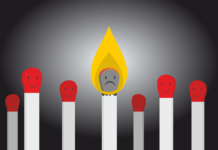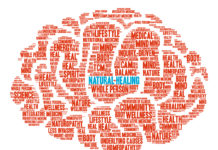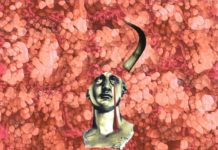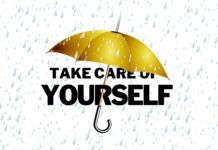Why Getting out of our Head is Good for us
From Philosophy for Life: Though often pathologized by psychiatry and western science, spiritual experiences and altered states of consciousness can actually be highly therapeutic and valuable.
"Having...
Maternal Skin-to Skin Contact Affects Long-Term Development
Israeli researchers find that maternal skin-to-skin contact with pre-term infants are related to "dynamic cascades of child physiological regulation and parental provisions in shaping...
Can Mindfulness Help With Burnout?
A new study investigates the effects of mindfulness-based interventions on employee’s wellbeing across different workplace environments.
Spontaneous Improvement in Depression, With and Without Placebo
Researchers at Columbia University and Queens College reviewed 10 trials of antidepressants that used wait-listed controls in order to determine the contribution of spontaneous...
Mindfulness Therapy May Be More Effective Without Antidepressants
While an estimated 74-percent of patients diagnosed with major depression receive a prescription for an antidepressant, new research reveals that mindfulness-based cognitive therapy (MBCT)...
Nutrition, Sleep, and Mental Health
It was somewhat surprising 15+ years ago when Bonnie first began to be challenged (by psychiatrists in particular, who are always being asked about adverse side effects) to answer this question: what are the side effects of taking a broad-spectrum formula? In all these ensuing years, the answer has not changed from her first observations: people repeatedly tell us that in addition to improved mental health and cognitive clarity, they sleep better and they experience relief of constipation. Now, finally, we have evidence for the first of those two ‘side effects’ in the form of an excellent study
This is the Fastest way to Calm Down
From TIME: A recent study suggests a neurological explanation for why deep breathing can be so effective in reducing stress and anxiety.
Article →
Psychiatric Drug Withdrawal and Protracted Withdrawal Syndrome Round-up
Beyond Meds has numerous resources on the topic of psychiatric drug withdrawal and is a starting point for withdrawal information on the web.
Initial Trial of Ayahuasca for Depression Shows Promising Results
Ayahuasca found to be effective in treating moderate to severe depression in low-income population.
A Lazy Person’s Guide to Happiness
From The Atlantic: According to author Dan Buettner, who studies the healthiest people in the world, improving our surrounding environment has a much greater impact...
Fast-Food and Commercial Baked Goods Cause Depression
Researchers in Spain followed 8.964 subjects who had never been diagnosed with depression followed for over six years, finding that consumers of fast food...
Yoga Improves Quality of Life for Elementary Students
A new study finds that a school-based yoga program improves third graders’ emotional and psychosocial quality of life.
Reimagining Healthcare
The conventional Western classification systems of health conditions are based on flawed science shaped by reductionist, hierarchical, and profit-driven ideologies. THEN wants to create a new paradigm built upon principles drawn from systems science, the life course perspective, developmental neurobiology, and other evidence-informed studies.
This Is Why Your Mental Health Can Get Worse Around Christmas
In this piece for HuffPost UK, Sophie Gallagher highlights some of the common factors that harm people's mental health during the holiday season, including financial stress, loneliness,...
Mountain Hiking Improves Hopelessness, Depression, and Suicidal Ideation in High-Level Suicide Risk
Researchers in Salzburg, Austria found that 20 participants who had attempted suicide at least once showed a significant reduction in hopelessness (P < 0.0001),...
McMindfulness: Buddhism as Sold to You by Neoliberals
From The Conversation: Removed from their ethical and contextual roots, mindfulness-based practices are increasingly being used to reinforce the individualist ideals of capitalist societies.
"Indeed mindfulness-based practices...
Trauma Resiliency Model: A New Somatic Therapy for Treating Trauma
Report presents new body-based therapeutic approach for shock and complex developmental trauma.
Sunday Meditation: Is True Mindfulness Even Meant to Be “Good for You”?
-"Mindfulness has been separated from its roots, stripped of its ethical and spiritual connotations, and sold to us as a therapeutic tool."
How Blaming the Brain Can Help Create Self-empathy, New Approaches
-Amy Johnson writes about how neuroscientific perspectives on her psychological struggles have helped her feel more agency in her growth as a person.
A Blueprint for an ‘Ecosocial’ Person-Centered Psychiatry
New article pushes for a shift from a psychiatry centered on brain circuitry toward an 'ecosocial' view of mind, brain, and culture.
WRAP Reduces Depression and Anxiety, Improves Recovery
519 individuals recruited from community mental health settings in Ohio were assigned to Wellness Recovery Action Planning (WRAP) or treatment as usual and assessed...
Wellbeing Enhanced More by Places Than Objects, Study Finds
From The Guardian: New research suggests that people are more likely to experience feelings of wellbeing, contentment, and belonging from places that evoke positive memories...
“Constructing the Modern Mind”
Psychiatrist and historian George Makari tries to illuminate the historical evolution of our understanding of the conscious mind and how it relates to the...
Beyondmeds.com
Beyond Meds presents alternatives to psychiatry, along with information and support for withdrawal and recovery.
This is What Self-Care Really Means
In this piece for Thought Catalog, Brianna West redefines self-care as actions we take to build a life that feels fulfilling, not a reprieve from...






















